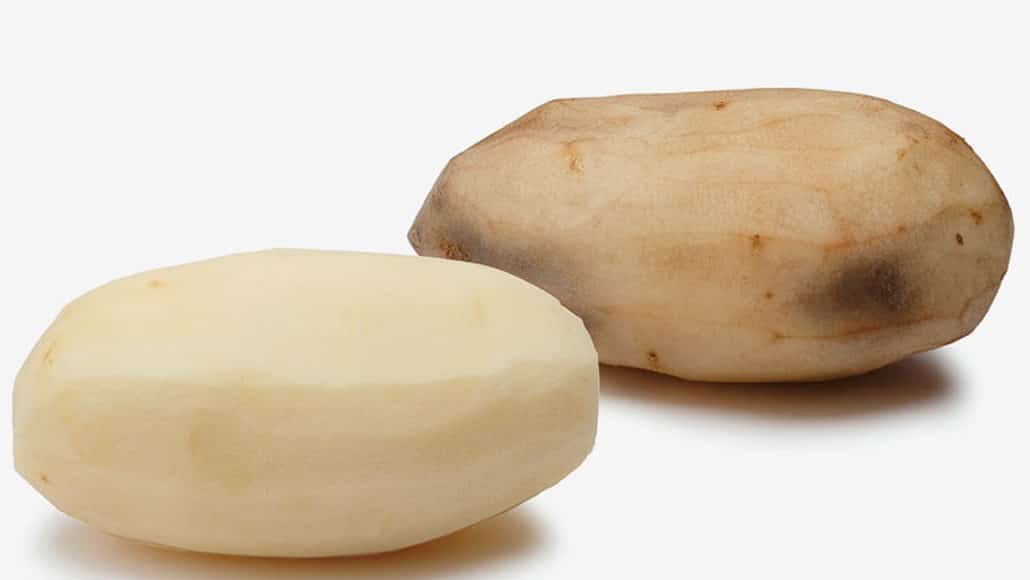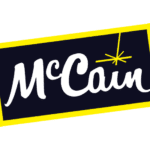Idaho-based J.R. Simplot Company can start selling its Generation 1 Innate potatoes in Canada starting this year, the Canadian Food Inspection Agency and Health Canada have decided in two letters addressed to the company on March 18. The GM potatoes already received regulatory approvals in the U.S. and are sold under the White Russet brand.
Innate potatoes are purported to have the same nutritional composition as the regular variety, with the company citing reduced browning or bruising of their product compared to unaltered tubers, as well as lower levels of carcinogens when cooked.
Simplot was able to reduce bruising and browning of their potatoes by up to 44 per cent by grafting genes from more resistant species, such as Russet Burbank, Ranger Russet and Atlantic variety into their genetic make-up. Their potatoes also produce less polyphenol oxidase, which leaks from damaged plastids in bruised or cut potatoes, causing darkening and in black spot.
“Consumers throw away about 30 per cent of their potatoes either due to bruising or sprouting, so we’ve solved the bruising problem,” says Doug Cole, director of marketing and communications at Simplot.
This genetic construct also lowers the expression of native genes that govern the production of asparagine and starch to reduce sugar conversion. Lower levels of these substances limit the potential for acrylamide formation when the potatoes are cooked at temperatures higher than 120 C — such as in frying, baking or broiling.
Based on studies on rats, the U.S. National Toxicology Program and the International Agency for Research on Cancer have identified acrylamide as a probable human carcinogen — although other studies found differences in acrylamide absorption speed between humans and rats.
“Our potato cuts acrylamide up to 62 per cent and a future generation will take up to 90 per cent, making it virtually negligible, which is a really big deal in the potato world,” says Cole.
Innate potatoes also easier to farm, and less wasteful, according to Simplot. The company states that that if all Canadian fresh Russet potato crops had the traits of Innate, waste would be reduced at the field, storage, packing, retail and food service levels by some 400 million kilograms. Carbon dioxide emissions would be cut by 30 million kilograms, water usage reduce by 5.6 billion litres, and 15,000 fewer pesticide hectare-applications would be needed, Simplot says.
All of these traits have led Kevin MacIsaac, general manager of United Potato Growers of Canada, to believe that Innate will attract a lot of commercial interests in the future, as it makes growing, cooking and storing much easier.
“This is the reality: we need to use these technologies to help feed the world in a better way with less waste and less risk of carcinogenic effects,” says Ontario potato producer Peter VanderZaag.
Health Canada doesn’t require for Innate potatoes to be labeled as “genetically engineered”. In the U.S., food packaging has to include details about the product’s website and a QR code for consumer information.
For more information, visit ZME Science.











